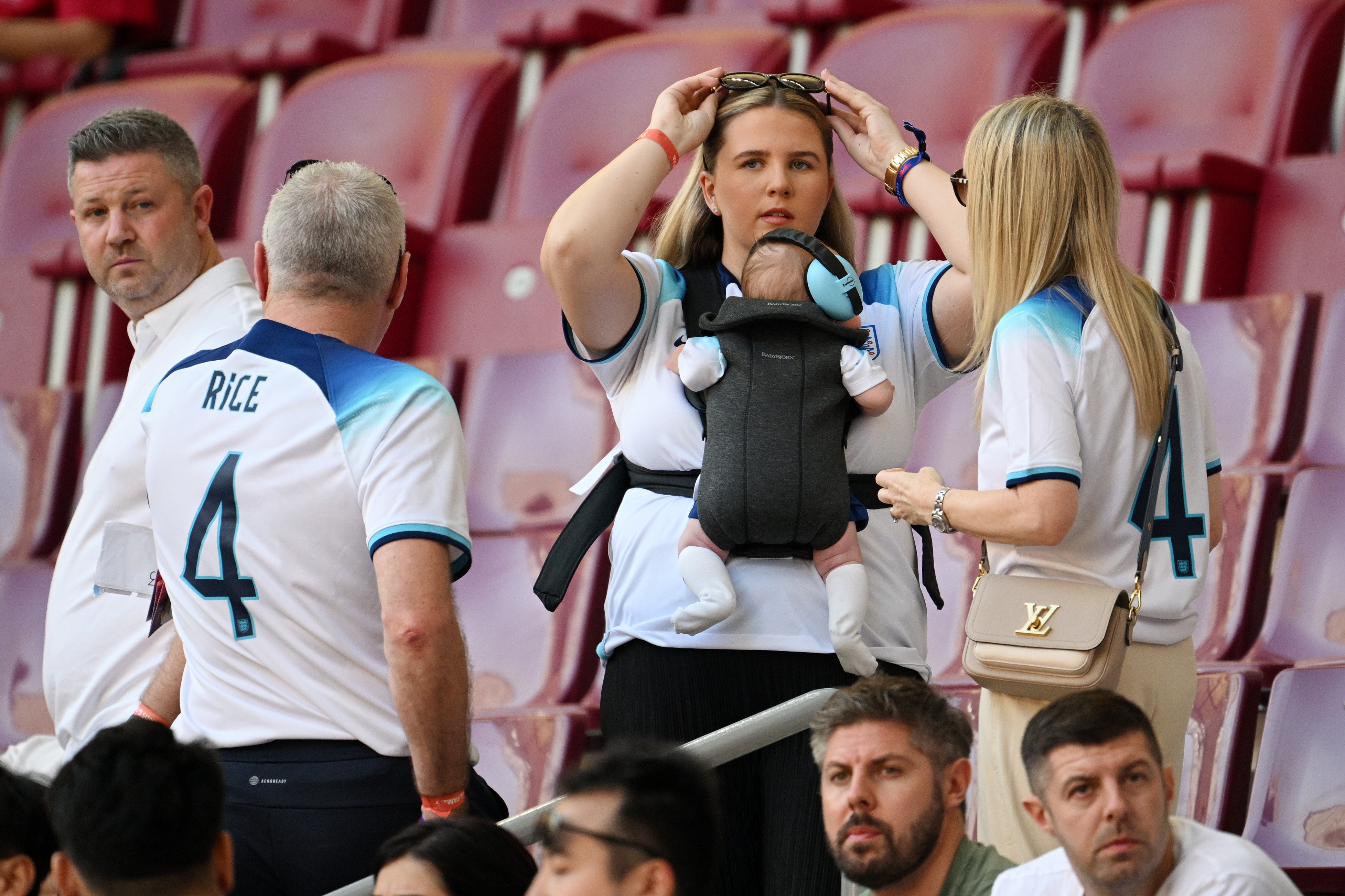What the awful abuse of Declan Rice’s partner tells us about men and football
Chanting in unison in a stadium environment can be one of the most moving and arresting sounds you’ll ever hear, writes Gemma Abbott. It can also be disgusting, abusive and (in Lauren Fryer’s case) extremely hurtful


It’s a scene as old as time: rows of loyal and passionate supporters chanting from the terraces in support of their beloved sports team. Beautiful, emotional and stirring, chanting in unison in a stadium environment can be one of the most moving and arresting sounds you’ll ever hear.
It can also be disgusting, abusive and extremely hurtful.
The tribal nature of chanting is partly what makes watching sport exciting. Anyone remember the empty-stadium matches we all had to watch on TV during the pandemic? In the absence of “live” fans in the ground, even the most anticipated of games between bitter rivals were reduced to what felt like a friendly kickabout in the park.
Fans, chanting, vocal support – it all creates atmosphere. And sport, now that we’ve experienced it, is worse off without it. But when does chanting turn into abuse?
On Tuesday night, Arsenal and England star Declan Rice was subjected to what can only be described as abusive chants from a group of Chelsea supporters watching the game. Except the chants weren’t just about him – they were also aimed at his girlfriend, Lauren Fryer.
Rice seemed to ignore the chants, which repeated a specific slur three times (although he must have heard what happened, given he was getting ready to take a corner right in front of the Chelsea fans who were singing at him).
Now if you’re old enough, you might remember a certain infamous chant about Victoria Beckham which was regularly sung by opposition fans when her husband David was playing for Manchester United.
In the recent Netflix documentary, Beckham, Victoria addresses the episode and the chant, describing arriving at her seat in the stadium and being sung about by 75,000 people as “embarrassing” and “hurtful”.
Victoria Beckham was also one of a group of women ceremoniously labelled “Wags” by England’s tabloid press, who used it to refer to the wives and girlfriends of high-profile footballers in the lead-up to the 2002 World Cup in Japan.
That was over 20 years ago now. Times have changed. Haven’t they...?
Don’t be so sure. If the abhorrent behaviour witnessed on Tuesday by that group of fans is anything to go by, there continues to be a minority of football-supporting men who perpetuate that same misogynistic, abusive and disgusting behaviour in the stands of football clubs today.
The fact that these chants took place just days after Fryer had felt compelled to wipe all posts from her Instagram account after finding herself the target of cruel online trolls only compounds the vileness of it all.
Fryer has been taunted for her appearance, with the trolling first starting in December last year when an anonymous account told Rice he “could do better”.
But in a post-Andrew Tate world, none of this should come as a surprise, should it? These men are being told that they’re misunderstood and being crushed and subdued by a world full of women who demand equality and respect.
Give me a break.
Thankfully, I believe that this exact kind of behaviour towards vulnerable women will only inspire women to fight harder for equality and respect. It’s the irony behind everything the whiny, misogynistic influencer Tate stands for: in demanding that men be returned to the position of “apex predators” or “Alpha male”, it only increases the potency of feminist arguments and galvanises more women to join them. It also inspires many men – who can think of nothing worse than being roped into the same category as Tate.
If we’re to find a single piece of hope in this sad Rice situation, it’s in the male fans who have subsequently condemned the abuse and called for bans for any supporters involved.
One West Ham fan felt compelled to tweet: “I think this is one of the most depressing things I have seen sung in recent years.” Another said: “Absolutely disgusting, have them banned from the stadium.”
They’re right – and clubs must do more, or else they risk looking sympathetic to women-hating.
Most clubs do have strict rules in place about abusive chanting but it doesn’t look like this is having the consequential effect it’s intended to have on fan behaviour. So isn’t it time to get more serious about abusive chanting?
The technology exists to match names to faces in the stands – and the policy is there.
So why aren’t the clubs and the Premier League coming down harder on these low-lifes? It’s time for lifetime bans from stadiums and proper criminal charges. Football is dirty enough on the pitch these days but it desperately needs the same clean-up in the stands, too.

Join our commenting forum
Join thought-provoking conversations, follow other Independent readers and see their replies